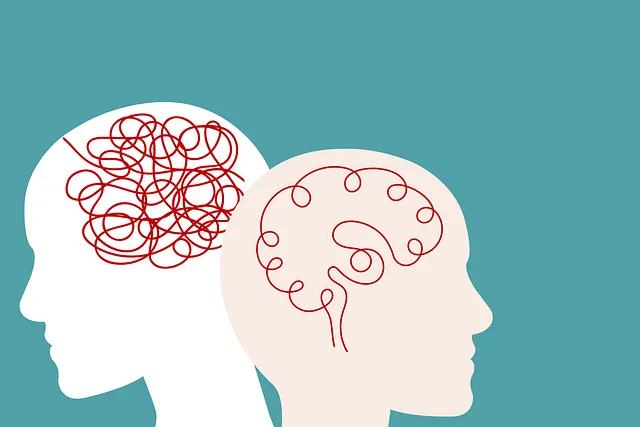Cultural competency training is crucial at Lone Tree Kaiser Permanente's psychiatry department to serve diverse patients effectively. Biases stemming from cultural misunderstandings can hinder treatment and lead to negative mental health outcomes. The Stress Management Workshops Organization advocates for Mind Over Matter principles, promoting culturally sensitive coping strategies. Training programs equip healthcare providers with knowledge about various communities' mental health practices, reducing burnout and improving patient satisfaction. Case studies show successful training significantly boosts staff morale and patient care. Ongoing support through resources like the Lone Tree Kaiser Permanente psychiatry phone number ensures professionals stay informed and adapt to diverse cultural needs in mental health settings.
“Enhancing patient care through cultural competency is a critical aspect of modern healthcare, as evidenced by the growing emphasis on understanding diverse cultures at organizations like Lone Tree Kaiser Permanente. This article explores the significance of cultural competency training for healthcare providers, addressing biases that impact patient interactions. We delve into effective training programs and showcase successful case studies. Additionally, resources for continuous learning are provided, emphasizing the ongoing need for improvement in this essential area, as highlighted by the psychiatry phone line at Lone Tree Kaiser Permanente.”
- Understanding Cultural Competency in Healthcare: A Necessary Approach
- The Impact of Cultural Biases on Patient Care
- Training Programs: Equipping Healthcare Providers with Cultural Sensitivity
- Case Studies: Successful Implementation and Outcomes
- Resources and Support for Continuous Learning and Improvement
Understanding Cultural Competency in Healthcare: A Necessary Approach

Cultural competency is an essential aspect of healthcare that involves understanding and appreciating the diverse cultural backgrounds, beliefs, and values of patients. In a world where Lone Tree Kaiser Permanente psychiatry services are sought after by a diverse community, it becomes crucial for healthcare providers to be culturally competent. This approach ensures that every patient receives quality care tailored to their unique needs, fostering trust and improving health outcomes.
By integrating cultural competency training into the fabric of healthcare education, professionals can prevent burnout, enhance communication, and resolve conflicts effectively. This includes learning trauma-supportive practices, which are vital for addressing the psychological scars left by traumatic experiences. Such strategies not only benefit patients but also equip healthcare providers with the tools needed to navigate complex cultural landscapes, ensuring a more inclusive and compassionate healthcare environment for all.
The Impact of Cultural Biases on Patient Care

Cultural biases, often unconscious, can significantly impact patient care and outcomes, especially in diverse communities. Healthcare providers, including those at Lone Tree Kaiser Permanente’s psychiatry department, must recognize how their own cultural perspectives and assumptions might influence interactions with patients from different backgrounds. For instance, a provider’s implicit bias could lead to misinterpreting a patient’s symptoms or preferences due to cultural differences in expressing pain, emotional distress, or seeking help. This can result in inadequate treatment plans, causing further stress and potentially long-term negative effects on the patient’s mental health.
These biases may stem from various factors, such as societal stereotypes, personal experiences, or limited exposure to diverse cultures. For example, a provider might unintentionally apply Western concepts of mental health directly to patients from non-Western cultures, ignoring traditional healing practices and beliefs. Such gaps in understanding can create barriers to effective communication and care, especially when dealing with sensitive issues like trauma, grief, or self-esteem concerns. The Stress Management Workshops Organization promotes Mind Over Matter Principles as a way to enhance cultural competency by teaching coping strategies that respect individual cultural contexts, thereby improving patient outcomes and fostering a more inclusive healthcare environment.
Training Programs: Equipping Healthcare Providers with Cultural Sensitivity

Healthcare provider cultural competency training programs are designed to equip professionals like those at Lone Tree Kaiser Permanente’s psychiatry department with the sensitivity and knowledge needed to serve a diverse patient population effectively. These programs go beyond basic cross-cultural communication skills, delving into deeper understanding of various cultural beliefs, values, and practices related to mental health. For instance, Lone Tree Kaiser Permanente might offer training on how different cultures approach stress reduction methods or anxiety relief, as well as the significance of Mental Wellness Journaling Exercise Guidance in various communities.
The training often involves interactive workshops, case studies, and role-playing scenarios that simulate real-life challenges healthcare providers may face when caring for individuals from varied backgrounds. By fostering a culturally sensitive environment, these programs not only enhance patient care but also contribute to improving outcomes by ensuring every patient receives personalized guidance tailored to their unique cultural needs, such as those seeking Stress Reduction Methods or struggling with Anxiety Relief, reflecting the holistic nature of mental wellness.
Case Studies: Successful Implementation and Outcomes

Case studies demonstrate the powerful impact of cultural competency training when implemented successfully. Take, for instance, Lone Tree Kaiser Permanente’s psychiatry department, which integrated comprehensive training programs into their existing mental health education initiatives. The result? A significant reduction in burnout among healthcare providers and improved patient satisfaction ratings. This transformation highlights the importance of tailored interventions, such as mindfulness workshops and peer support networks, in addressing stress-related issues within the profession.
These studies also underscore the value of continuous learning and adaptive strategies for burnout prevention. By examining real-world examples, like Lone Tree Kaiser Permanente’s approach, other healthcare organizations can gain insights into effective ways to foster a culturally sensitive environment. Implementing similar programs could lead to better mental health outcomes not only for providers but also for the diverse patient populations they serve.
Resources and Support for Continuous Learning and Improvement

Healthcare provider cultural competency training requires ongoing support and resources for continuous learning and improvement. Lone Tree Kaiser Permanente’s psychiatry phone number can be a valuable starting point, offering guidance and access to expert resources. Many organizations provide online platforms, workshops, and webinars dedicated to enhancing cultural awareness in healthcare settings. These opportunities enable professionals to stay updated on the latest research, share best practices, and engage with diverse communities.
Self-esteem improvement is another key aspect often incorporated into these programs. By fostering a culture of emotional intelligence and self-reflection, mental health professionals can better manage their own biases and stress levels, ultimately enhancing patient care. Additionally, risk management planning for mental health professionals incorporates Mind Over Matter principles, teaching them to navigate challenging situations with resilience and adaptability.
Cultural competency training is not just a desirable skill for healthcare providers; it’s an imperative. As seen through successful programs like those at Lone Tree Kaiser Permanente, equipping psychiatrists and other professionals with cultural sensitivity leads to improved patient care, increased access to services, and enhanced community trust. By addressing implicit biases and fostering an inclusive environment, healthcare organizations can better serve diverse populations. Continuous learning and improvement, supported by readily accessible resources, are key to revolutionizing mental health care and ensuring positive outcomes for all patients, regardless of their cultural background. For those seeking guidance, the Lone Tree Kaiser Permanente psychiatry phone number offers a valuable starting point.


